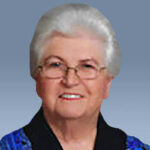“Set your minds on things that are above, not on things that are on earth, for you have died, and your life is hidden with Christ in God. But now you must get rid of all such things—anger, wrath, malice, slander, and abusive language from your mouth.”
Colossians 3:2-3, 8
A few years ago my husband and I had a large garden. We had a compost pile in one corner of the garden so we could add compost to the soil before each planting. In that pile we dumped food garbage, the leaves we raked up in our yard, grass clippings and sheep dung from the barn yard. For any of you gardeners out there, you know the magic of a compost pile and how compost enriches the soil.
Once when we had left on vacation we failed to take out the garbage before we left. When we came home after being gone for five days, the garbage stunk to high heaven. We had turned the air conditioner up to 80 when we left and the stench filled our house with odors that nearly knocked us over when we entered. I quickly grabbed the rotting food and took it to the compost pile.
Later while spraying the house with air freshener and lighting candles in the kitchen and family room, I remember thinking of these words Paul wrote to the Colossians. “Get rid of all such things–anger, wrath, malice, slander, and abusive language from your mouth” (which is like the “smelly garbage”). I think the compost pile image makes a lot of sense for Paul’s list of emotions and actions. For example, think of an emotion you may be struggling with now. I personally would vote for anger, because I came from a Scotch-Irish background. My dad had red hair, and so did two of his sisters. So I can blame it on my ancestry, right? No not really.
Well, this text says I need to throw my anger on the compost pile! Now it was easy to understand that the smelly, rotten food and the sheep dung needed to go to the compost pile, but how does that work with things as anger, or wrath, malice, slander, and abusive language? Perhaps it works–the exact, same, way.
First, you take out the trash, which means you have to locate it and bag it up. Often we don’t recognize that we have some of these things stinking up our lives. They can be hidden in, around and under our denial, and, if it isn’t stinky to us then we don’t recognize it’s even there.
Have you ever discovered some trash under a piece of furniture that you had no idea was there. You had not looked under that couch in months, but there it is, dust balls and pens and coins, a piece of jewelry, or a bone the dog lost. Sometimes we have to stop and force ourselves to look around our lives in order to find our emotional or behavioral garbage. We can’t put in the compost pile if we don’t recognize that it’s there.
Paul says we need to gather up our stinky emotional trash and throw it on the compost pile –the anger, the wrath, the malice, the fear. We have to realize it’s garbage and let it go. I’m not talking about giving up–I’m talking about letting go. Unlike giving up, letting go is an act of power.
When we let go of a stinky trait greater forces can take over. Like the food that decomposes when left in the kitchen garbage can too long it can become rich dirt if composted. When we hand over our anger, our fear or our pain–to a greater power, it fades and begins to change.
That is when something beautiful begins to grow in its place or as Paul says, we “clothe ourselves in something new.” Anger on the compost pile can become empathy. Fear can become insight, and pain can become strength.
The lesson for me in this scripture is this: If I leave this garbage in my life too long, it will surely stink up my life and definitely affect those around me. And the longer I leave it, the worse it smells.
Questions
- What foul smelling stuff—anger, fear, shame, slander or jealousy—do I need to toss onto the compost pile?
- What beautiful things will God grow in their place?
Sue is NLS Spiritual Director, since 2019 and is a retired Lutheran Pastor (ELCA). Active in VdC since 1995, she has served two terms on the Board of the Texas VdC Secretariat, and also on the Texas Gulf Coast VdC Board as Spiritual Director since its start-up in 2017.



